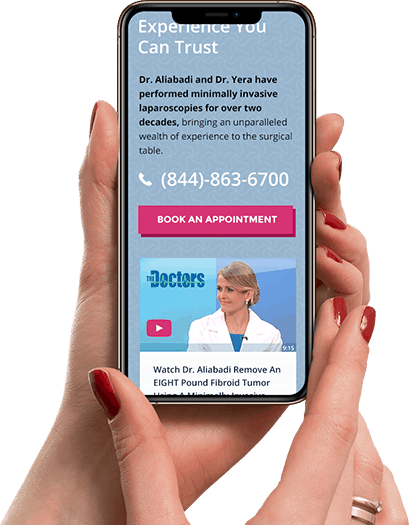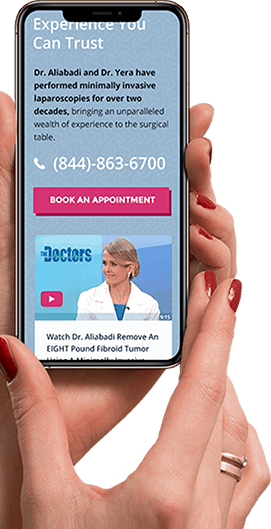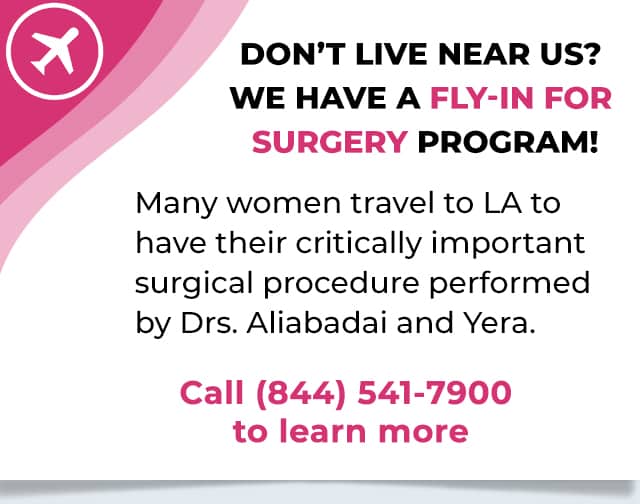More than half a million hysterectomy procedures are performed in the US each year. As per estimates, every one in nine women will get their uterus removed during their lifetime.
There can be multiple reasons for a hysterectomy, including heavy menstrual bleeding, large uterine fibroids, pelvic pain, endometriosis, or even cancers.
The procedure can significantly improve your quality of life by relieving you of debilitating pain and discomfort. However, some misconceptions associated with hysterectomy can impact your decision.
Considering that a hysterectomy is a life-changing surgery, you must discuss everything in detail with your surgeon before taking the plunge.
This article will discuss “what I wish I knew before my hysterectomy,” so you can make an informed choice for your health.

What should I know before having a hysterectomy?
Hysterectomy is a permanent major surgery with significant ramifications, so making an informed decision after careful forethought is crucial. Following is a list of what you wished you knew before a hysterectomy.
1. There are different types of hysterectomies
Depending on the problem you’re looking to solve, different amounts of your pelvic organs may be removed.
- A partial hysterectomy removes the uterus while leaving the cervix in place.
- A total hysterectomy or full hysterectomy removes the entire uterus, including the cervix.
- A radical hysterectomy is commonly used in cases of cancer. The surgeon removes the entire uterus, cervix, and upper part of the vagina.
2. Less invasive methods are available
When you think about hysterectomy surgery, you’re probably thinking of an abdominal hysterectomy. An abdominal hysterectomy involves a large cut across the abdomen — similar to a C-section — to access and remove the uterus.
However, open surgery is no longer the only option, and isn’t even always the best one! An abdominal hysterectomy is more invasive, has a longer recovery time, and leaves a bigger scar.
A hysterectomy can also be performed vaginally — with a small incision in the vagina to access and remove the uterus — or with laparoscopic surgery — using a long, thin tool inserted through small incisions in the abdomen.
At the Outpatient Hysterectomy Center, we prefer laparoscopic hysterectomies because they’re less invasive, have shorter recovery times, and practically no scarring.
3. You may or may not experience menopause symptoms
Generally, a hysterectomy will not trigger menopause. When a hysterectomy is combined with an oophorectomy (ovary removal), patients will undergo what is known as surgical menopause. Because the ovaries are responsible for estrogen production, removing the ovaries causes a drastic estrogen decline and onset of menopause symptoms such as hot flashes, mood swings, and weight gain.
Depending on your age, surgical menopause may be put off with hormone replacement therapy (HRT). HRT provides your body with the estrogen your ovaries are no longer producing.
4. Psychological recovery may take longer than physical recovery
OB/GYNs must consider the psychiatric condition of patients before suggesting a hysterectomy. While most patients experience relief after their surgery, some take longer to mentally adjust to their new situation.
Patients are more likely to experience postoperative mental distress if their gynecologist does not properly go over expectations and outcomes before surgery. Intellectually, women realize they will not be able to become pregnant after a hysterectomy.
However, some patients find out they need a medically necessary hysterectomy before they’ve finished growing their family. Counseling and support should be recommended to these women.

Call 877-760-3564 or click here to schedule online
5. There are alternatives to hysterectomy
This is one of the most essential facts in the “what I wish I knew” list. Surgical removal of the uterus is not the only solution to your fibroid or bleeding problems.
Most women undergo the knife to eliminate unresolved large uterine fibroids. However, non-invasive methods such as uterine artery embolization (UAE), uterine fibroid embolization (UFE), and myomectomy are all viable alternatives to effectively cure small to moderate-sized fibroids without a hysterectomy.
A uterine prolapse can be permanently resolved by removing the uterus. However, there are other, less invasive options to try first. There are surgical options to fix prolapse without removing the uterus. Depending on the severity and frequency of your prolapse, pelvic floor exercises can also help by strengthening the muscles that hold your pelvic organs in place.
If there is no serious underlying cause, painful periods or excessive bleeding may also be resolved with hormonal birth control.
Your healthcare provider should review these less-invasive options before suggesting a hysterectomy.
6. A hysterectomy may not completely resolve your problems
Unfortunately, a hysterectomy might not be the solution to your problem. Several conditions might not improve with the removal of the uterus.
Endometriosis is when endometrial cells (lining of the uterus) start growing outside the uterus or on the other pelvic organs — such as the fallopian tubes and ovaries.
A hysterectomy is not the most effective method to manage this abnormal growth as the tissues growing outside the uterus remain in place.
The surgical removal of the uterus is also not a permanent solution to alleviating polycystic ovary syndrome (PCOS) symptoms. The removal of ovaries does not impact the high levels of androgens produced.
So, if you suffer from PCOS or endometriosis, a hysterectomy might not be the ideal procedure for you!

7. There are post-surgical side effects
Every surgery comes with recovery time and side effects. Luckily, most of the side effects are temporary and any post-surgery discomfort will be addressed by prescription medications or over-the-counter pain meds.
The procedure can cause bladder spasms causing intense pain while peeing. Urinary retention might also occur, whereby you cannot pass urine despite feeling the urge to do so. The surgery can also lead to urinary incontinence.
Intestinal gas and bloating are also commonly experienced by hysterectomy patients.
8. A hysterectomy can actually improve your sex life
Many women fear that a hysterectomy will take away their ability to enjoy sex and that the surgical procedure will negatively impact their sex lives. But contrary to popular belief, a hysterectomy does not deprive you of having good sex.
The reduced pain can make sex more pleasurable, and you can even continue to have orgasms after hysterectomy surgery. Once fully recovered from the surgical procedure, which typically takes about six weeks, you can continue your sexual activities as usual.
Should you have a hysterectomy?
Thousands of women across the globe undergo hysterectomies for different medical conditions. As an irreversible, life-altering procedure, a hysterectomy is not always the best choice for all conditions, rendering it crucial to consult with a trusted gynecologist before choosing surgery.
Out of the different types of hysterectomy, laparoscopic hysterectomy is the least invasive, with minimal healing time.
Considering a hysterectomy? Talk to the Outpatient Hysterectomy Center
Drs. Aliabadi and Yera are renowned masters of gynecology, obstetrics, and gynecological surgery. Patients travel from around the country to be treated at the Outpatient Hysterectomy Center and Dr. Aliabadi even travels to teach her surgical expertise to other doctors.
OHC is committed to providing the best women’s health care; our staff chooses the least invasive treatment option whenever possible.
We invite you to establish care with the Outpatient Hysterectomy Center. Please make your appointment online or call us at (844) 863-6700.
The Outpatient Hysterectomy Center is conveniently located for patients residing throughout Southern California and the Los Angeles area. At the Cedars-Sinai Medical Center, we are near Beverly Hills, West Hollywood, Santa Monica, West Los Angeles, Culver City, Hollywood, Venice, Marina del Rey, Malibu, Manhattan Beach, and Downtown Los Angeles, to name a few.
Call 877-760-3564 or click here to schedule online










